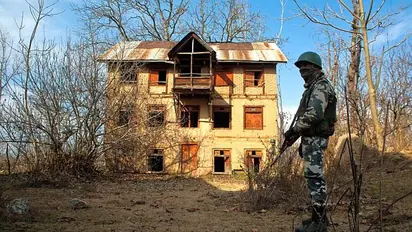Lok Sabha Elections: Kashmiri migrants can vote via postal ballots

Synopsis
The Election Commission of India (ECI) announced that Kashmiri migrant electors will retain the option of postal ballots, following discussions with the Central and State Governments. This decision ensures their participation in elections, given their displacement due to terrorist activities.
The Election Commission of India (ECI) on Saturday announced that Kashmiri migrant electors, who were compelled to leave their native places in the Kashmir region due to terrorist activities during the late 1980s and early 1990s, will continue to have the option of postal ballots.
This decision comes after extensive consultations with the Central Government and the State Government. Since 1996, these migrant electors have been able to cast their votes through postal ballots, and since 2002, they have had the option to vote in person at Special Polling Stations established in Delhi, Udhampur, and Jammu.
The recent developments following the abrogation of Article 370 of the Constitution of India and the enactment of the Jammu and Kashmir Reorganisation Act, 2019, leading to the creation of the Union Territory of Jammu and Kashmir, mark a pivotal moment in the region's electoral landscape.
With elections in the Union Territory of Jammu and Kashmir set to occur for the first time since its inception, the Election Commission has taken the decision to extend the existing scheme for Kashmiri migrant electors from the UT of Jammu and Kashmir without alterations.
This decision underscores the Commission's commitment to ensuring the participation of all eligible voters, including those who have been displaced.
The Lok Sabha elections for 2024 have been scheduled to be conducted in seven phases, commencing on April 19 and concluding on June 1, with the counting of votes slated for June 4. The polling dates for each phase are as follows: April 19 (Phase 1), April 26 (Phase 2), May 7 (Phase 3), May 13 (Phase 4), May 20 (Phase 5), May 25 (Phase 6), and June 1 (Phase 7).
Addressing the media, the Chief Election Commissioner (CEC) provided insights into the election preparations, revealing that a staggering 97 crore registered voters, including 47.1 crore women, are eligible to exercise their voting rights. To facilitate the electoral process, 55 lakh Electronic Voting Machines (EVMs) will be deployed. Notably, individuals aged above 85 and those with a 40% benchmark disability will have the option to vote from the comfort of their homes. While the provision for voting from home was available in select assembly elections previously, this marks the first instance of its implementation nationwide in a general election.
In the preceding 2019 Lok Sabha elections, conducted in seven phases from April 11 to May 19, the results were announced on May 23. Securing a total of 303 seats, the NDA, led by Prime Minister Narendra Modi, clinched its second consecutive term in office.
Stay updated with the Breaking News Today and Latest News from across India and around the world. Get real-time updates, in-depth analysis, and comprehensive coverage of India News, World News, Indian Defence News, Kerala News, and Karnataka News. From politics to current affairs, follow every major story as it unfolds. Get real-time updates from IMD on major cities weather forecasts, including Rain alerts, Cyclone warnings, and temperature trends. Download the Asianet News Official App from the Android Play Store and iPhone App Store for accurate and timely news updates anytime, anywhere.